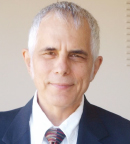New therapeutic agents for acute lymphocytic leukemia (ALL) have led to dramatic improvement in remission rates, but questions concerning the proper sequencing and combination of these agents remain. At the National Comprehensive Cancer Network® (NCCN®) 13th Annual Congress: Hematologic Malignancies™, David G. Maloney, MD, PhD, shared the latest immunotherapeutic approaches, including chimeric antigen receptor (CAR) T cells, which demonstrated a complete response in 94% of heavily pretreated patients in one clinical trial.1 According to Dr. Maloney, of the Fred Hutchinson Cancer Research Center and the Immunotherapy Clinic at Seattle Cancer Care Alliance, in Seattle, Washington, better sequencing and combinations will likely decrease the need for allogeneic hematopoietic cell transplantation (HCT).
Rituximab for Adult CD20-Positive ALL
As Dr. Maloney reported, 2017 marks the 20th anniversary of the U.S. Food and Drug Administration’s (FDA) approval of rituximab (Rituxan), which “represented the first major advance in the treatment of any lymphoma.” Although rituximab, an anti-CD20 monoclonal antibody, is the current standard of care in all CD20-positive lymphocytes, it has not been approved for ALL.

The increase in veno-occlusive disease [with inotuzumab ozogamicin] is worrisome, and it’s something clinicians have to watch out for if transplanting patients.— David G. Maloney, MD, PhD
Tweet this quote
When compared with standard-of-care chemotherapy, however, the addition of rituximab to chemotherapy improved outcomes in a randomized controlled trial of 209 adults with CD20-positive, Philadelphia chromosome (Ph)-negative ALL (enrolled from May 2006–April 2014).2 Rituximab, which was administered during all treatment phases for a total of 16 to 18 infusions, increased the 2-year event-free survival rates from 52% to 66% (P = .04) and decreased the rates of relapse. According to Dr. Maloney, investigators also observed a trend for improved overall survival and more rapid clearing of minimal residual disease. Moreover, although the overall incidence rate of severe adverse events did not differ significantly between the two groups, there were fewer allergic reactions to asparaginase in the rituximab group.
“The trial was complicated by an unequal rate of allogeneic HCT between groups,” said Dr. Maloney, “but given the improvement in survival and relapse rates, rituximab is certainly a reasonable treatment approach for clinicians to take in this population.”
Inotuzumab Ozogamicin
Approved by the FDA in August 2017, inotuzumab ozogamicin (Besponsa) is an antibody-drug conjugate (linked to calicheamicin) directed against the CD22-positive antigen present on B cells in all patients with mature B-ALL and most patients (> 90%) with precursor B-ALL. In a phase III trial of 326 adults with relapsed or refractory ALL,3 patients randomized to receive inotuzumab ozogamicin had a significantly higher rate of complete remission than those randomized to receive standard-of-care chemotherapy (80.7% [95% confidence interval {CI}: 72.1%–87.7%] vs 29.4% [95% CI: 21.0%–38.8%], P < .001). Moreover, complete remissions occurred irrespective of the duration of first remission, patient age, and the phase of salvage treatment.
“All groups retained statistical significance in favor of inotuzumab ozogamicin, and even patients who had failed stem cell transplantation had high rates of complete remission,” said Dr. Maloney.
Update on Immunotherapy for ALL
- Rituximab plus chemotherapy leads to modest improvement in survival with minimal toxicity in patients with CD20-positive ALL.
- Inotuzumab ozogamicin has a high overall response rate and is well tolerated, but veno-occlusive liver disease is a major adverse event in patients with prior or subsequent allogeneic stem cell transplant.
- Blinatumomab has yielded moderate response rates, but the 4-week continuous infusion can be a challenge for patients. The drug is more effective in patients with a lower disease burden.
- CAR T-cell therapy has produced higher complete responses but should be administered in centers that have experience due to greater toxicity.
Despite the high rates of complete remission, however, Dr. -Maloney described the long-term follow as “somewhat disappointing.” At 10 to 12 months, only a minority of patients are still in remission, and progression-free survival falls off rapidly, he reported. “Survival is somewhat dismal in this group,” he admitted. “At 2 years, the proportion of cured patients is only in the 20% to 25% range.”
Finally, although inotuzumab ozogamicin was generally well tolerated, in patients with prior or subsequent allogeneic HCT, veno-occlusive liver disease was a major adverse event. “The increase in veno-occlusive disease is worrisome, and it’s something clinicians have to watch out for if transplanting patients,” said Dr. Maloney.
Blinatumomab
Blinatumomab (Blincyto), a bispecific antibody combining anti-CD19 with anti-CD3, has also proven to be active in ALL. In a phase III trial of adult patients with relapsed or refractory B-cell precursor ALL,4 treatment with blinatumomab resulted in significantly longer overall survival than chemotherapy (7.7 vs 4.0 months; P = .01) Moreover, when compared with standard-of-care chemotherapy, remission rates within 12 weeks after treatment initiation were also significantly higher in the blinatumomab group, both with respect to complete remission with full hematologic recovery (34% vs 16%, P < .001) and complete remission with full, partial, or incomplete hematologic recovery (44% vs 25%, P < .001). Treatment with blinatumomab also resulted in a higher rate of event-free survival at 6 months than chemotherapy (31% vs 12%; P < .001).
OF NOTE
- On August 30, 2017, the FDA approved the first genetically engineered T-cell therapy (tisagenlecleucel [Kymriah]) for the treatment of patients up to 25 years of age with B-cell precursor ALL that is refractory or in second or late relapse.
- On October 18, the FDA approved the second chimeric antigen receptor (CAR) T-cell therapy, axicabtagene ciloleucel (Yescarta), a cell-based gene therapy, to treat adult patients with certain types of large B-cell lymphoma who have not responded to or who have relapsed after at least two other kinds of treatment.
According to Dr. Maloney, however, although there is clearly an overall benefit compared with conventional therapy, the response rates are moderate, and blinatumomab is still not curing the vast majority of patients. Dr. Maloney also described the 4-week continuous infusion as “cumbersome” and underscored significant toxicities. Adverse events were reported in virtually 100% of patients in both groups, he said.
CAR T Cells
One of the hottest topics in oncology, modification of T cells via CAR, has led to an explosion of new therapies that are already yielding impressive results. The key, Dr. Maloney explained, is the target of the CAR T cells. At the Fred Hutchinson Cancer Research Center, Dr. Maloney and colleagues have treated over 200 patients on protocol 2639, which is evaluating CD19 CAR T cells manufactured from an equal mix of CD8-positive and CD4-positive T-cell subsets. The study has included 36 adults with B-cell ALL following lymphodepleting chemotherapy.5
“These were heavily pretreated patients,” commented Dr. Maloney, who noted 33% had received prior HCT. “Some patients had very low CD4 and CD8 counts and would not qualify for further trials, but we were able to give outpatient delivery of lymphodepletion and CAR T-cell infusion in 72% of patients.”
[The side effect of aphasia] is one of the biggest mysteries right now in CD19 CAR T-cell therapy.— David G. Maloney, MD, PhD
Tweet this quote
Despite the advanced stage of disease, a complete response was observed in 34 of 36 patients (94%), and immunoglobulin H deep sequencing found that the index clone was undetectable in 65% of patients. Dr. Maloney, who described the product as “remarkably potent,” shared several principles that have been learned from these early trials.
“We’ve seen that higher doses of CAR T cells of defined composition result in an earlier and higher peak in blood, and the peak of CAR T-cell expansion is greater in patients with higher bone marrow tumor burden,” he explained. “This can lead to greater CAR T cells but also greater toxicity.”
Severe cytokine-release syndrome and neurotoxicity are serious but generally reversible side effects, said Dr. Maloney, which is why CAR T cells should be administered in centers with experience. In addition, serum cytokine levels on day 1 of CAR T-cell infusion may be a biomarker of toxicity in patients with B-cell ALL. The question, raised Dr. Maloney, is whether clinicians can intervene and treat those patients to prevent toxicity from developing further.
Focus on Aphasia
Brian Koffman, MD, of St. Jude Heritage Medical Group, highlighted the side effect of aphasia, which has been reported with CAR T-cell therapy, and asked whether this phenomenon is understood by researchers.

Brian Koffman, MD
“This is one of the biggest mysteries right now in CD19 CAR T-cell therapy,” said Dr. Maloney. “Although patients usually recover completely within a few days, word-finding difficulties can progress to severe coma and, in rare cases, cerebral edema and death. We think this problem is caused by increased cytokine levels in the central nervous system, endothelial damage, and breakdown of the blood-brain barrier—not from CAR T cells in the brain—but we’re still exploring causation while using treatment combinations such as tocilizumab [Actemra] and steroids.” ■
DISCLOSURE: Dr. Maloney has been an advisor for Gilead Sciences, Kite Pharma, Celgene, and Roche and has received (institutional) research support from Juno Therapeutics. Dr. Koffman owns stock in Juno and Gilead Sciences.
REFERENCES
2. Maury S, et al: Rituximab in B-lineage adult acute lymphoblastic leukemia. N Engl J Med 375:1044-1053, 2016.
3. Kantarjian HM, et al: Inotuzumab ozogamicin versus standard therapy for acute lymphoblastic leukemia. N Engl J Med 375:740-753, 2016.
4. Kantarjian H, et al: Blinatumomab versus chemotherapy for advanced acute lymphoblastic leukemia. N Engl J Med 376:836-847, 2017.
5. Turtle CJ, et al: CD19 CAR-T cells of defined CD4+:CD8+ composition in adult B cell ALL patients. J Clin Invest 126:2123-2138, 2016.

